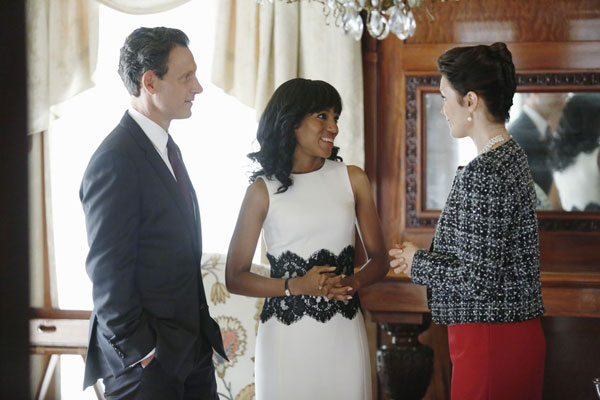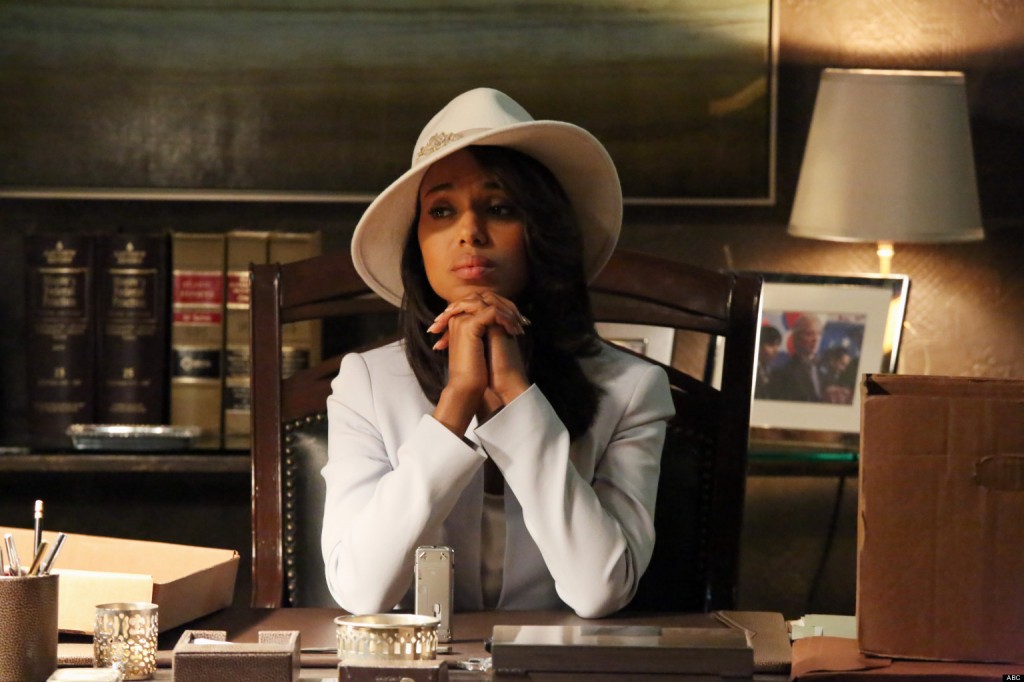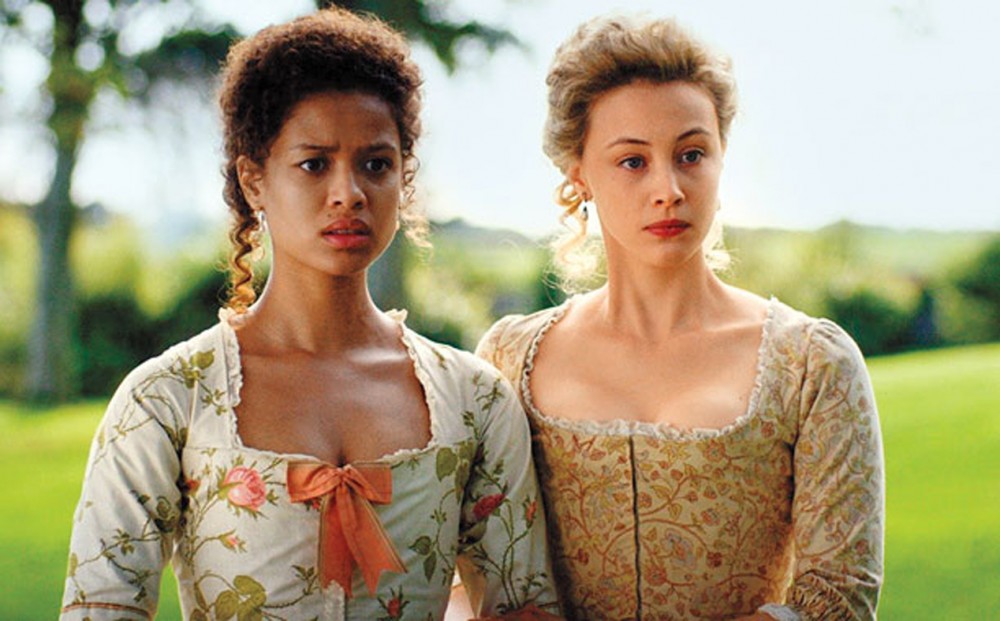Since the series debut in April of 2012, ABC’s Scandal has quickly become one of the most talked about television shows on air—to the extent that some Gladiators expressed a debilitating onset of “Scandal withdrawal” during the season’s summer hiatus.
More than the buzz the American political thriller generates every Thursday night, its main character Olivia Carolyn Pope (played by Kerry Washington) spawns even greater discussion.
The fast-talking fixer draws mixed reactions, from wide-eyed adulation to utter disdain, across audiences. Those who love Scandal and Olivia Pope seem to have just as much fervor in their conviction as those who despise her.
How can we make sense of these feelings towards Ms. Pope?
These three shades of Olivia Pope help to explain why we so strongly love her, hate her, or just want to see her reach life’s happy ending.
1. The Powerful Black Woman
We love that Olivia Pope is a powerful black woman, primarily because we have tired of the stereotypes that black women so often portray—the sexually loose jezebels who sleep with every man walking; the pancake flipping, chicken deep frying, jolly Aunt Jemimas, or the overweight mammies looking after a houseful of Bebe’s kids.
Anyone who follows black women in the mainstream has become all too acquainted with these character staples that masquerade as representatives of the black female constituency.
Something better ushered in with Olivia Pope’s character that makes us speak out: Thank you, Shonda Rhimes. Thank you for saving prime time television and bringing some flavor to our televisual imaginations.
That something lies in Olivia Pope’s multi-dimensionality. Olivia is an educated, career-driven woman with political acuity reminiscent of Susan Rice and Condoleeza Rice. To boot, the Olivia Pope character is loosely based on a real woman, Judy Smith, who worked as a press aide with the George H.W. Bush presidential administration and also serves as a co-executive producer on Scandal.
In her work life, Olivia draws the respect and adoration of her co-workers. A former White House Communications Director, Ms. Pope heads the Washington D.C. crisis management firm Pope & Associates. Known as the best fixer in Washington, her role is to manage the public images of the most elite individuals in the nation.
A powerhouse in the political arena, Olivia fixes scandals like we fix typographical errors. Only with more flair.
In her love life, she is charmingly courted by professional men, Senators, even the president.
You go, girl.
The energy around Olivia Pope’s character parallels the zest that circled the auras of Blaxploitation’s superwomen. Pam Grier, Tamara Dobson, Jeannie Bell and the rest battled the white police, interminable drug wars, and related toxins rupturing the black community.
Only, since the Blaxploitation boom thrived during the same era as sexploitation, the black woman’s take-no-prisoners attitude was accompanied with a helping of sex kitten. Ms. Grier, Ms. Dobson, and Ms. Bell fought bad guys in bras tops and mini skirts.
Unlike these former women, Olivia Pope is classy to the max. She wears none of the above—not even a skanky, slutty, once-in-the-year Halloween costume.
We also love Olivia Pope because she billowed out of the creative mind of Shonda Rhimes, a rather formidable showrunner. Ms. Rhimes has accomplished an impressive feat, far beyond simply making hit shows—though clearly sustaining a successful, long-running series is no simple task (quite the opposite).
Because of women like Ms. Rhimes and Mara Brock Akil (Girlfriends), black women have finally begun to get their due, with roles that actually require them to act and not just stand in as girlfriends, wives, mothers, or body props. As if boasting her own political slogan, “Pope is Hope” that interest surrounding this portrayal would embolden other content creators to be more imaginative with their female characters.

2. The Mistress
Olivia Pope is a homewrecker.
Despite her boundless intelligence, despite her ability to turn the most riveting scandal into a trivial misunderstanding, despite her wearing the white hat for justice, a lingering taste is left in the mouths of viewers who worship the powerful black woman grounds that Olivia Pope so inventively treads. So it goes for spectators who cannot overlook Ms. Pope’s all too willing role as an accomplice to adultery.
Like it or not, Olivia is the kind of woman who would, and in many occasions does, break up a home.
That’s right, our boldly outspoken shero, Olivia Pope, stands impotent before the mirror of morality. At work, she is a proponent of justice. But her personal life wavers between hues of gray. She abandons her moral compass in her anything, anywhere goes relationship with the fictitious president of the United States Fitzgerald Grant III (Tony Goldwyn)…Fitz to Olivia.
The justification goes that Mellie Grant, First Lady of the United States (Bellamy Young) and President Grant are unhappily wedded. Their marriage was founded not upon love or romance, but upon political ambition, and for those reasons audiences are warranted in their biddings for the dissolution of an unhappy, dispassionate union in favor of nuptials based on a genuine attraction.
Yet, no one in his/her righteous state of mind can condone adultery. It is a sin for Christian folk. Still others fear they would personally find themselves victim to a spouse’s infidelity.
The elephant in the room is Mellie and their children. Shonda Rhimes has created the ultimate damned if you do romance. No matter what your feelings are about Mellie anyone rooting for “true love,” for Fitz and Liv’s tryst to prevail, is rooting for adultery. Mellie and Fitz are married with children. Even if the home is unhappy, it is still a home. It isn’t broken until it is broken.
Lately, Mellie curtly refers to Olivia as Fitz’s whore. Or with vitriol, her. So insignificant and inhuman that she hasn’t even a name. These words slander the powerful black woman, and some might argue, rightfully so. We cringe asking ourselves, will Olivia become that woman? The Alicia Keys, if you will?
In a way, Olivia’s relationship with Fitz undermines Olivia’s very powerful affront. It dismantles her powerful black woman character. In spite of her accomplishments, Olivia is perceived as just another woman who slept her way to the top. Her lightening fast calculations, her brains and wit—all overshadowed by her rendezvous with men in higher command.
As the married one, Fitz holds the power. It is his decision solely whether to leave or not leave his wife. Waiting in limbo, Olivia is powerless. Meanwhile, she dismisses a handful of worthy suitors, including a well-groomed Senator and a devoted government operative.
Fast-forward decades later…Fitz’s children will be graduating college. And where will Olivia be, except old, wrinkly, and gorging cabernet in an empty room, alone, and waiting by the Fitz phone. How many more election seasons will she let slip away as she postpones her livelihood, hoping that his will change?
The fact that Fitz is a white man in power adds another dimension.
One does not have to rummage too far back into the doldrums of history to find powerful slave masters who wielded force to coerce black women into bed, resulting in illegitimate children. The familiar story of Thomas Jefferson and Sally Hemings comes to mind. More recently Essie Mae Washington-Williams, in her 70s, announced that she was the daughter of the segregationist Senator Strom Thurmond.
According to historian Darlene Clark Hine, the predominant motivation for black women to run away from slavery and later participate in the Great Migration was to escape the sexual exploitation implicit in their daily domestic work. In this fight for freedom, African American women sought to gain control over their sexual selves and their offspring. To her misfortune, Olivia Pope is instead running into such a predicament.
The 2013 fairy tale of romantic love would have us believe that love does, or at least should, govern unions—not force, coercion, power, or rape. Yet even the passion that befalls in Fitz and Olivia’s relationship is not enough to distance the affair from a historical legacy of abuse. In a relationship characterized by an imbalance of power, consent is not a privilege the subordinate wields at her disposal.
Given the circumstances, critics wonder how black women can be faithful voyeurs to such degradation. Hasn’t a talented woman like Ms. Pope greater aspirations in life than to become some white man’s mistress? Can’t she build her own family with children rather than sneak behind the white picket fence that another couple built? Is that all an educated black woman has to live up to?

3. The Everyday, Modern Woman
As mistress collides with the powerful black women, we are left to think that Olivia Pope has two warring personalities coming to a turbulent head. Simultaneously, we applaud and oppose her.
But a third side of Olivia Pope lets us reconcile these incompatibilities and hope for the best. In many ways, Olivia embodies the everyday, modern woman.
Like many visible women, Olivia’s experience poses the question: can women have it all? A modern woman at heart, she seeks happiness in her work and love life. And she is unwilling to understate her intelligence to find it.
The ink scrolling out of Shonda Rhimes’s golden pen also writes the beginnings of a post-racial society. One that has seen a black president and will perhaps witness the first interracial couple living in the White House as President and First Lady.
OK, that outcome is quite unlikely given the circumstances surrounding their relationship. Not to mention, as Cyrus (Jeff Perry) remarked, Republican voters might not be ready for a first lady of Olivia’s hue.
However, more often television and film precede social occurrences, rather than merely imitating them.
If this is so, in spite of her imperfections, Olivia Pope foreshadows a new echelon of power for black women to aspire to. For many post-racial, post-feminist optimists, Ms. Pope’s endeavors to cross once proscribed boundaries leave a road ripe for women to travel.









